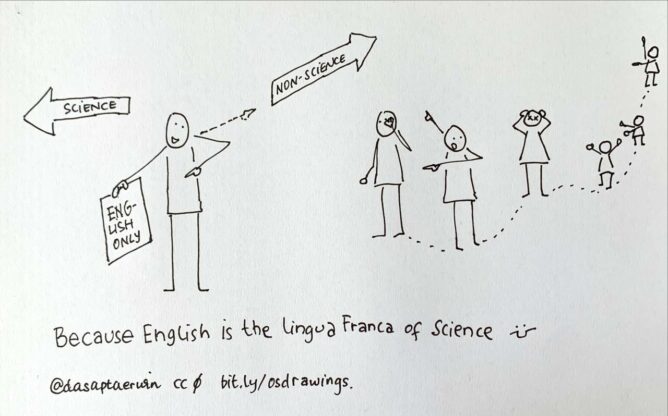There is a language bias in the current global scientific landscape that leaves non-English speakers at a disadvantage and prevents them from actively participating in the scientific process both as scientists and citizens. Science’s language bias extends beyond words printed in elite English-only journals.
https://www.frontiersin.org/articles/10.3389/fcomm.2020.00031/full
Hello all.
It’s Dasapta from Indonesia. Thank you Victor for inviting me to joining The Translate Science Initiative. Although scientists are coming from every corner of the earth, living perfectly using their own native/mother tongue, but it’s English which has been used as the lingua franca of science.
Conversely, many scientists in Africa, Asia, Latin America and Europe still publish their work in national journals, often in their mother tongue, which creates the risk that worthwhile insights and results might be ignored, simply because they are not readily accessible to the international scientific community. To overcome this dilemma, several initiatives now aim to strengthen the impact and quality of national journals with the goal of gaining greater international visibility for articles published in a language other than English.
https://www.ncbi.nlm.nih.gov/pmc/articles/PMC1796769/
Born and raised in Indonesia, a non-English speaking country, it’s important for me to promote the use of national language (Indonesian) instead of English in scholarly communications, because:
- Most researches in Indonesia are about local problems. Therefore it’s very logical if the main mode of dissemination should be in Indonesian.
- Although many Indonesians would take English course since kindergarten or primary schools, but English still is not used as the first language. Therefore it takes more time and effort to translate our researches to English, while it could be shared faster if we used Indonesian.
- With the advancement of Natural Language Processing (NLP), it should be fairly easy for non-Indonesian speakers to understand articles written in Indonesian. Hence the burden to immediately use English as the main language of science could be lowered.
